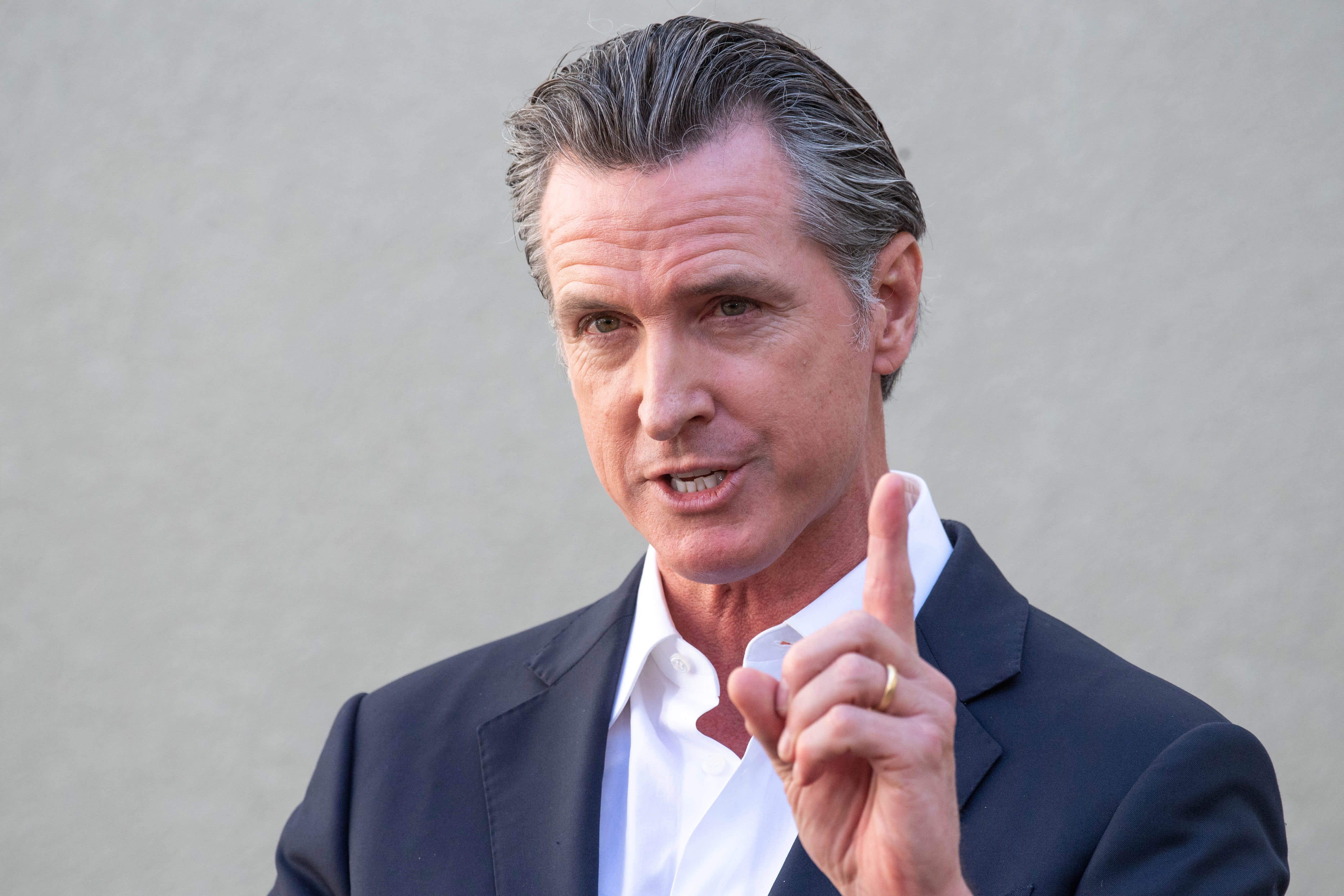California Governor Gavin Newsom on Thursday said the state’s in a “transformational moment” to shift away from fossil fuels, as climate change continues to fuel devastating wildfire seasons and historic drought conditions across California.
The governor’s remarks to CNBC’s Yasmin Khorram come shortly after the state unveiled this year’s budget proposal, which invests $22 billion in new climate change funding and allocates money from last year’s budget for a total of $37 billion in climate investment over six years.
“The magnitude of the challenge is self-evident,” Newsom said. “The extreme droughts, the record-breaking heat that we experienced just 24 or so months ago, record-breaking wildfires … require us to do more and to manage these existential threats more aggressively. We’re doing everything in our power, not just rhetorical.”
Newsom said the budget’s climate funding is an example of the state’s willingness to do the hard work that other states and nations simply talk about.
“A lot of jurisdictions talk a good game. They put out headline grabbing pronouncements of ‘We’re going to reduce greenhouse gas emissions 40% below 1990 levels by 20-fill-in-the-blank,’ as a substitute for the hard work,” Newsom said.
“The hard work is ‘the how,’ and that money represents ‘the how,'” Newsom said of the budget, adding that funding will help “convert old diesel buses that are driving our kids to school” and get “drayage trucks you see on the highways and freeways off the highways and freeways.”
As California grapples with worsening wildfires, water shortages and a historic drought, Newsom has faced growing pressure to act more urgently on climate change.
So far, the governor has signed executive orders requiring that all new cars to be electric by 2035 and banning new fracking permits by 2024. Shifting the transportation sector towards cleaner energy is a major component of the budget plan, as cars, trucks and other vehicles comprise about 40% of the state’s climate-changing pollution.
The administration has also adopted a building code to transition new buildings to clean energy sources. And California in 2020 become the first state to pledge to protect 30% of land and coastal waters by 2030.
Newsom also addressed proposed changes to the state’s solar incentive program that would cut the state’s solar market in half by 2024, according to a recent report from energy research firm Wood Mackenzie, potentially hindering the state’s leadership role in building out clean energy.
California has the highest number of residential solar customers across the country and the incentive program has been a primary driver of that growth.
The California Public Utilities Commission has justified the changes by arguing that it’s unfair for typically wealthier consumers who can afford solar panels to be subsidized by rate-payers in lower-income communities.
“We want to recognize that there’s costs that are borne, not just by the person that’s procuring the rooftop solar, but more broadly,” Newsom said. “And we want to make sure that we’re judicious in those that are sharing that cost, so we can continue to accelerate our low-carbon, green growth efforts.”
